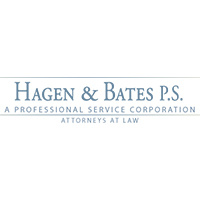Quinault Criminal Lawyer, Washington
Sponsored Law Firm
-
 x
x

Click For More Info:
-
Soriano Law
104 W. Marcy Ave Montesano, WA 98563» view mapCriminal Law Where You Need to Be
An integral part of our legal services is to work closely with clients so that they can make the right decisions with respect to their legal needs.
800-337-9120
Wayne D. Hagen
✓ VERIFIEDCriminal, Personal Injury, DUI-DWI, Business
Since the firm was established in 1993, the skilled attorneys at Hagen & Bates P.S. have provided versatile, professional and effective solutions to a... (more)
Harold S. Menefee
State Government, Criminal, Securities Regulation, Administrative Law
Status: In Good Standing Licensed: 45 Years
Jack Bradford Micheau
Family Law, State Government, Indians & Native Populations, Criminal
Status: In Good Standing Licensed: 41 Years
Amanda Kleespie
Juvenile Law, Federal, Criminal, Indians & Native Populations
Status: In Good Standing Licensed: 19 Years
Ronnie A. Soriano
Divorce & Family Law, DUI-DWI, Estate, Landlord-Tenant, Native People
Status: In Good Standing
FREE CONSULTATION
CONTACTScott A. Campbell
Divorce & Family Law, Criminal, Personal Injury, Car Accident
Status: In Good Standing
FREE CONSULTATION
CONTACTOrlando James Tadique
Accident & Injury, Personal Injury, Criminal, Divorce & Family Law
Status: In Good Standing Licensed: 18 Years
David Leonard Mistachkin
Landlord-Tenant, Family Law, Criminal, Personal Injury
Status: In Good Standing Licensed: 21 Years
 Ronnie Soriano 104 W. Marcy Ave Montesano, WA
Ronnie Soriano 104 W. Marcy Ave Montesano, WA AboutSoriano Law
AboutSoriano Law Practice AreasExpertise
Practice AreasExpertise

